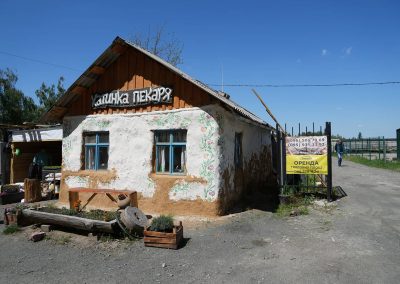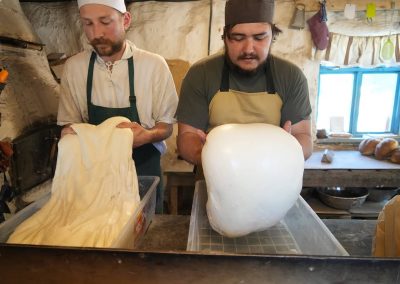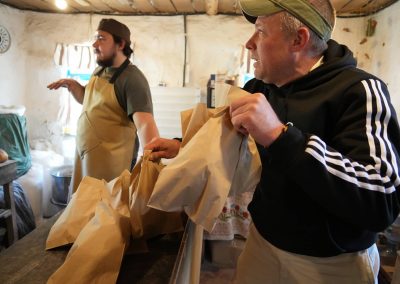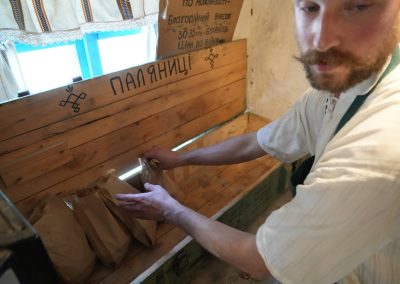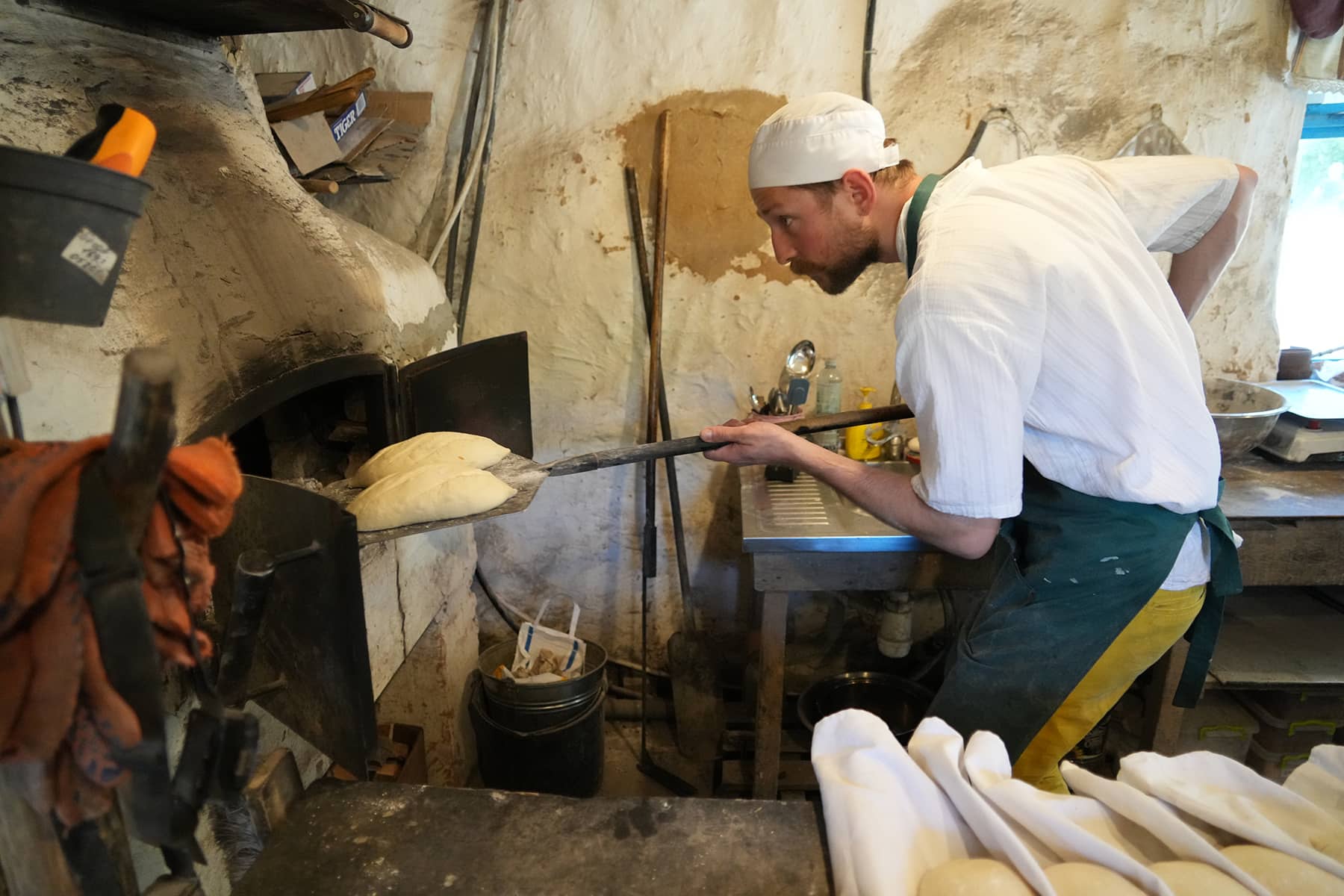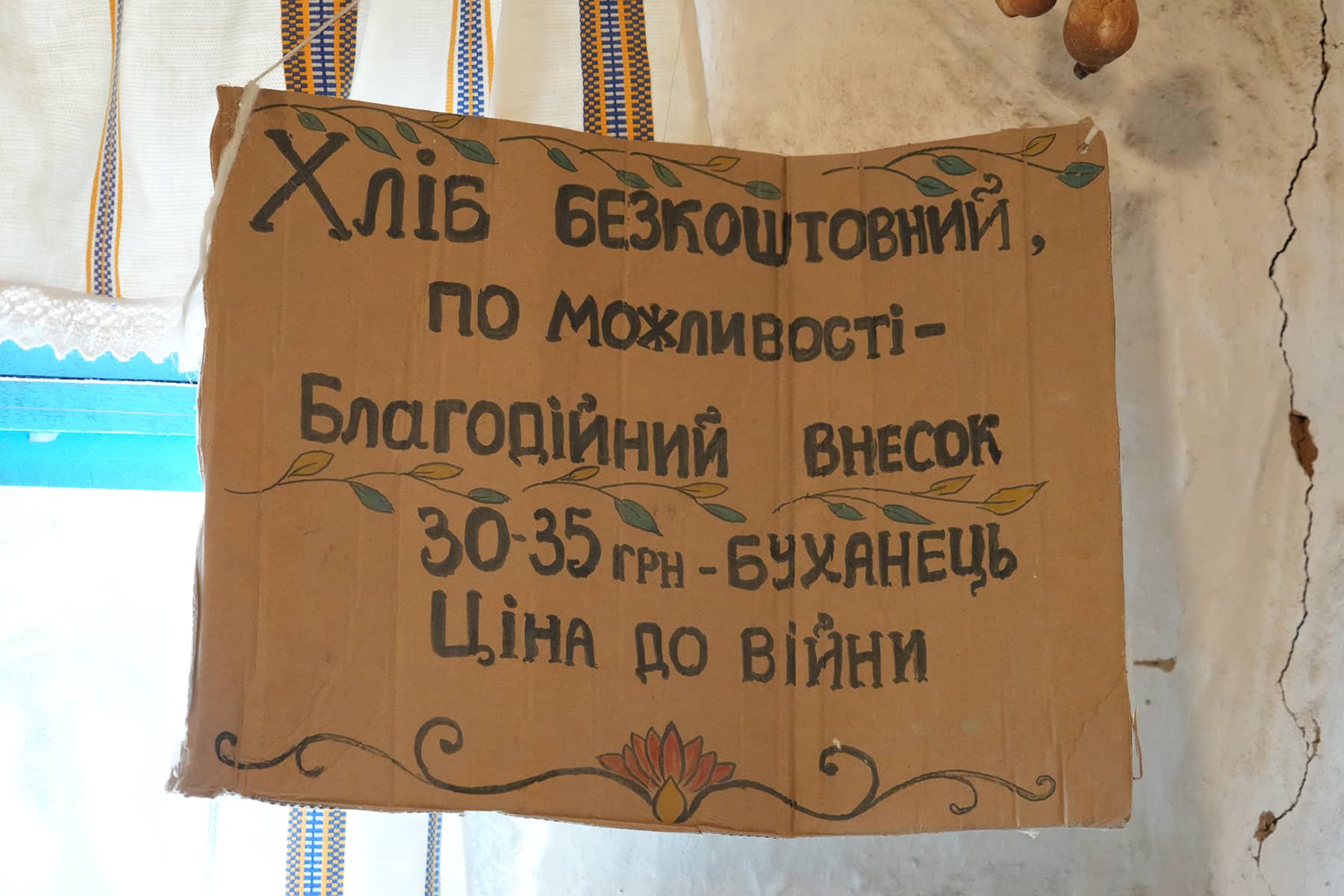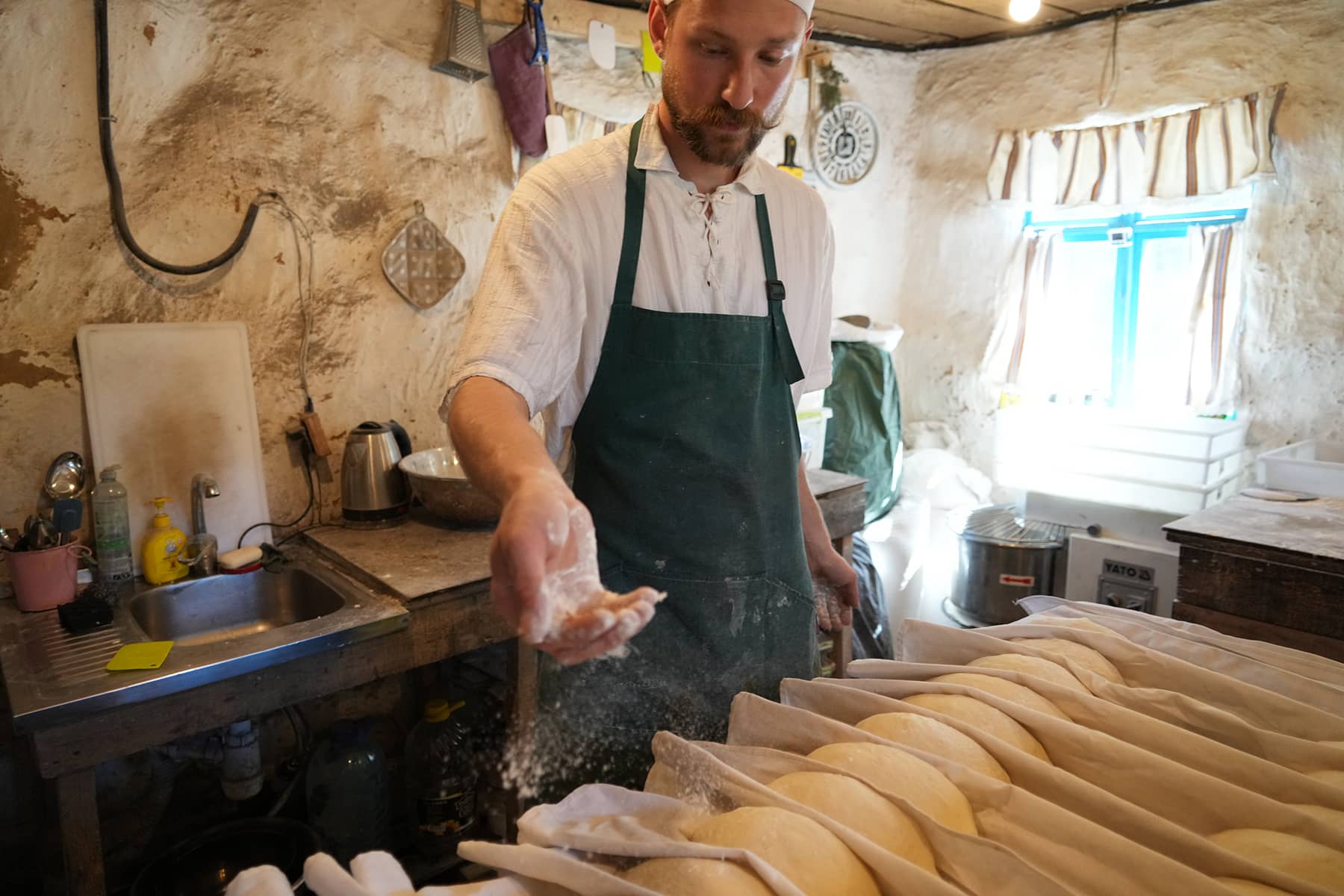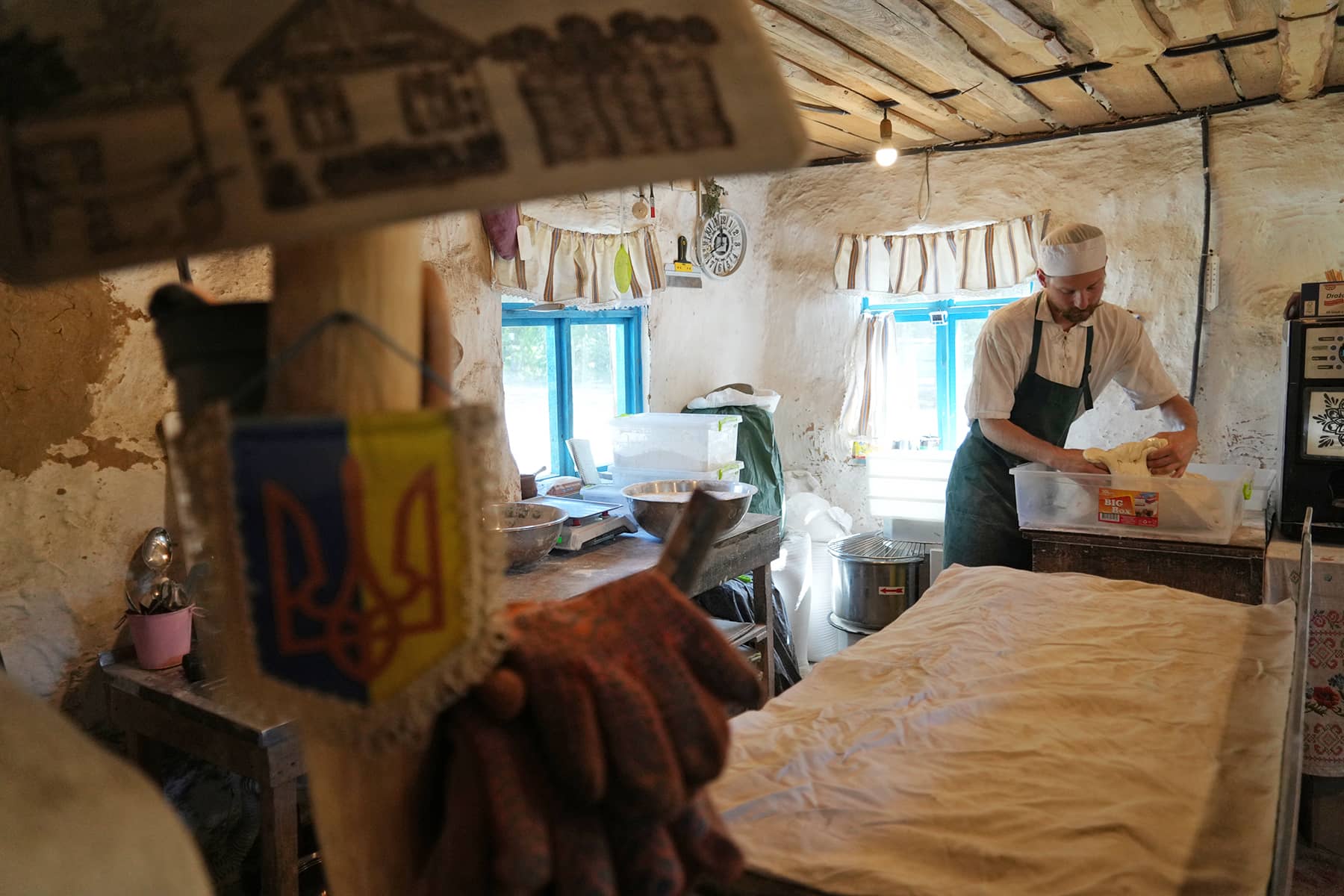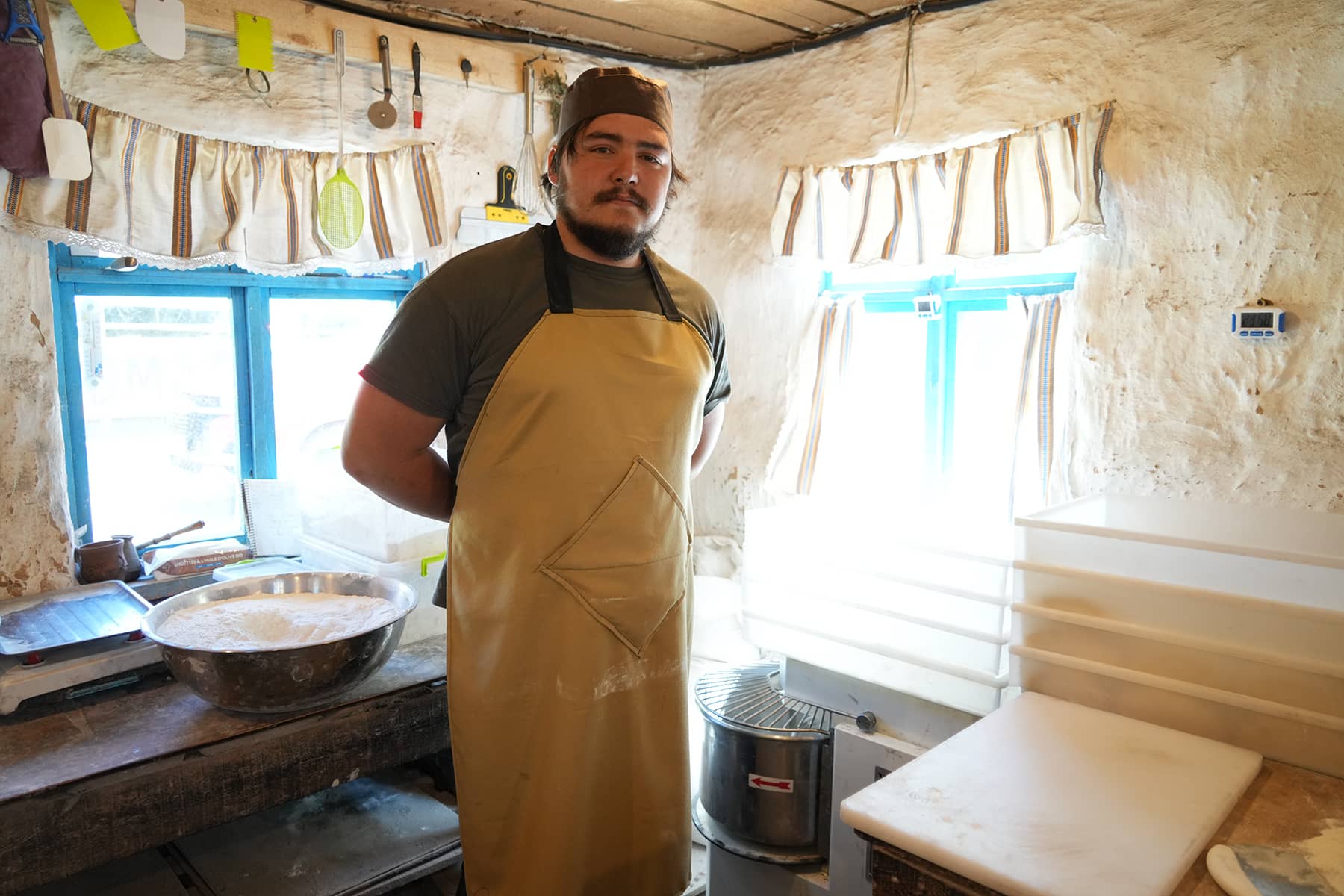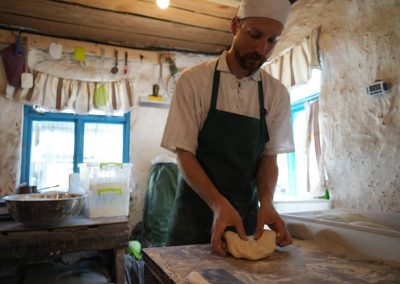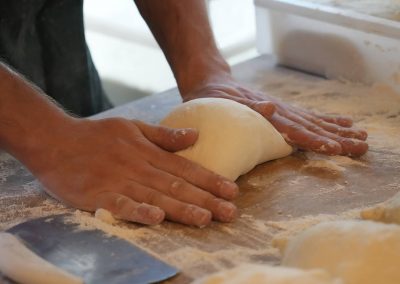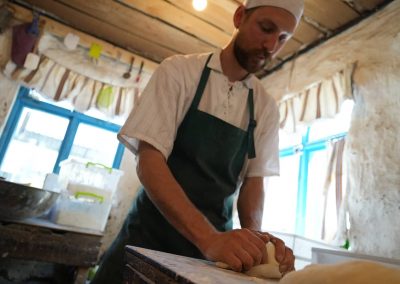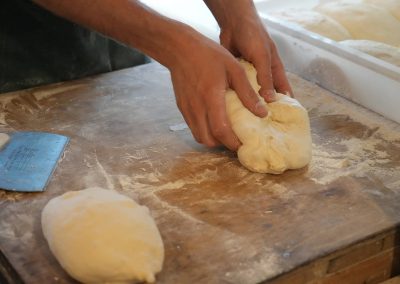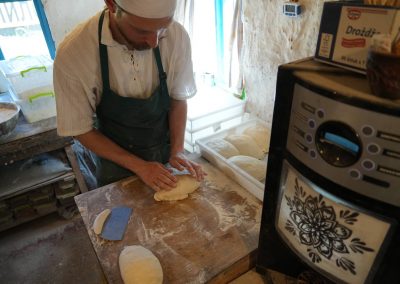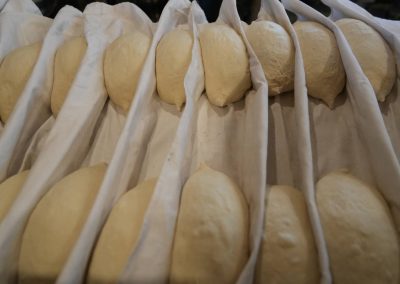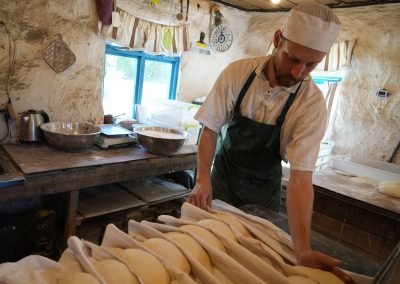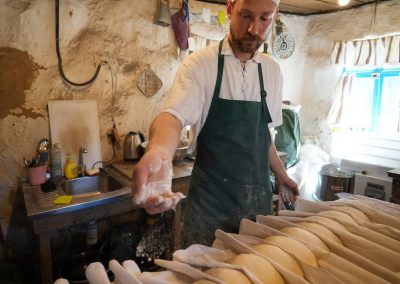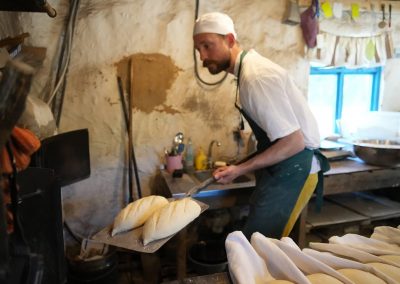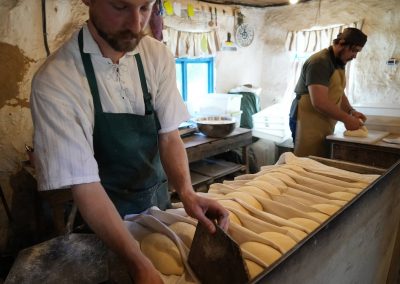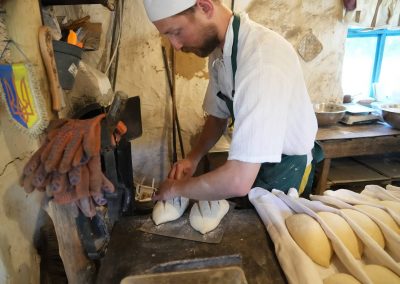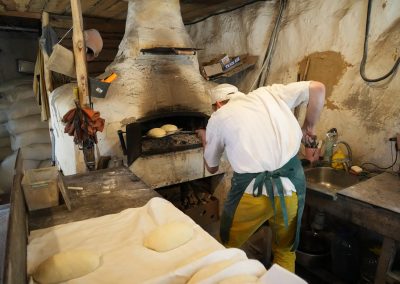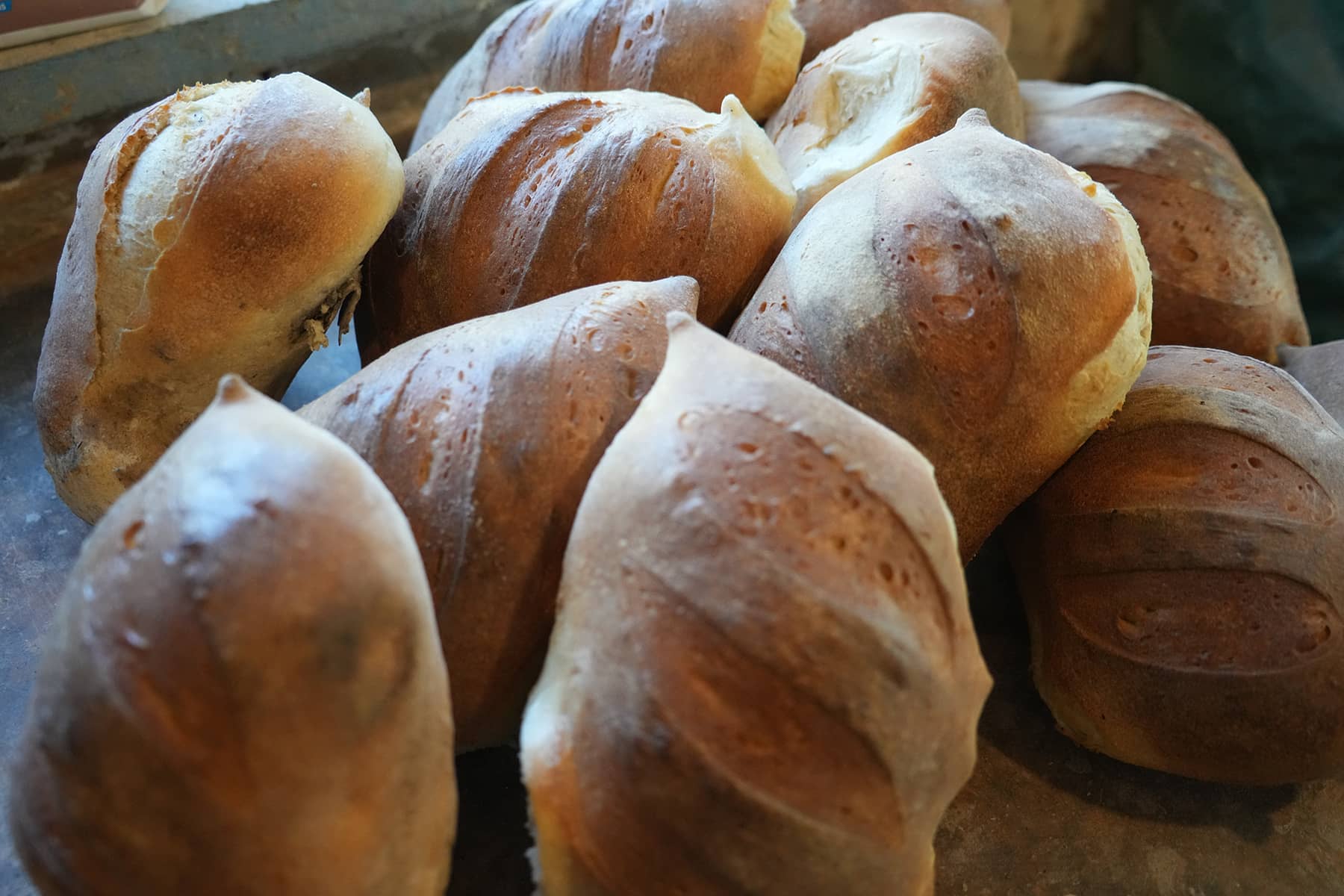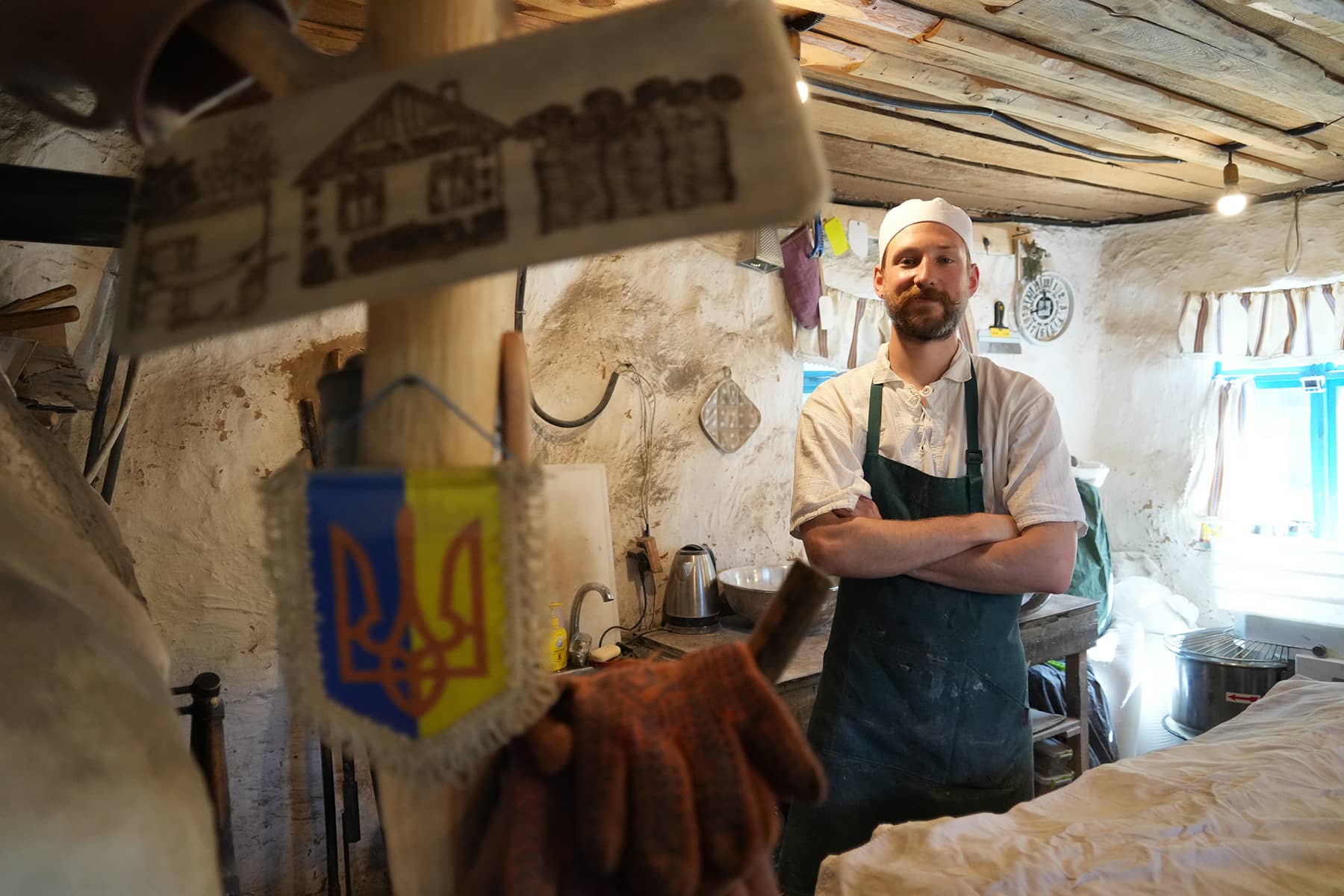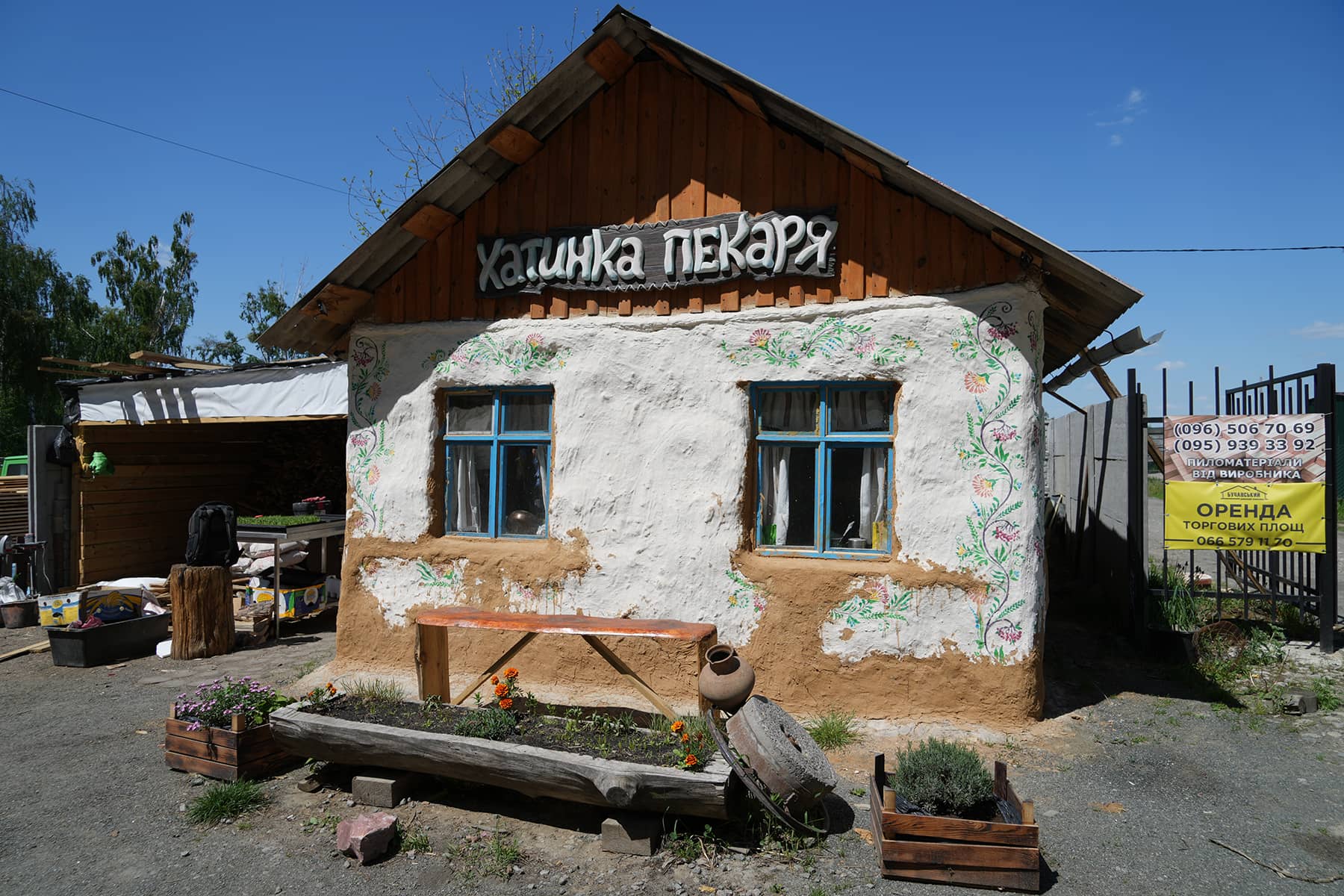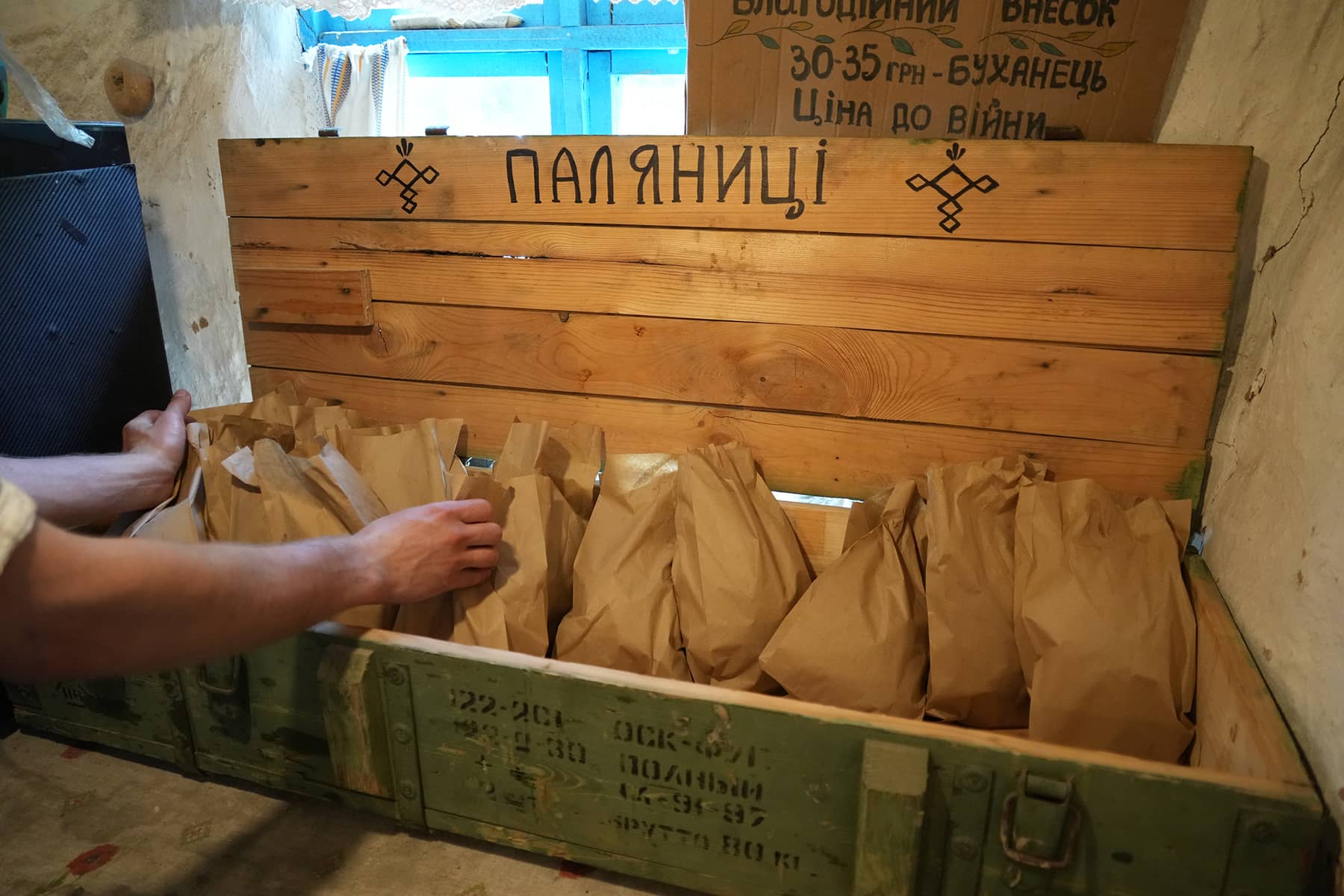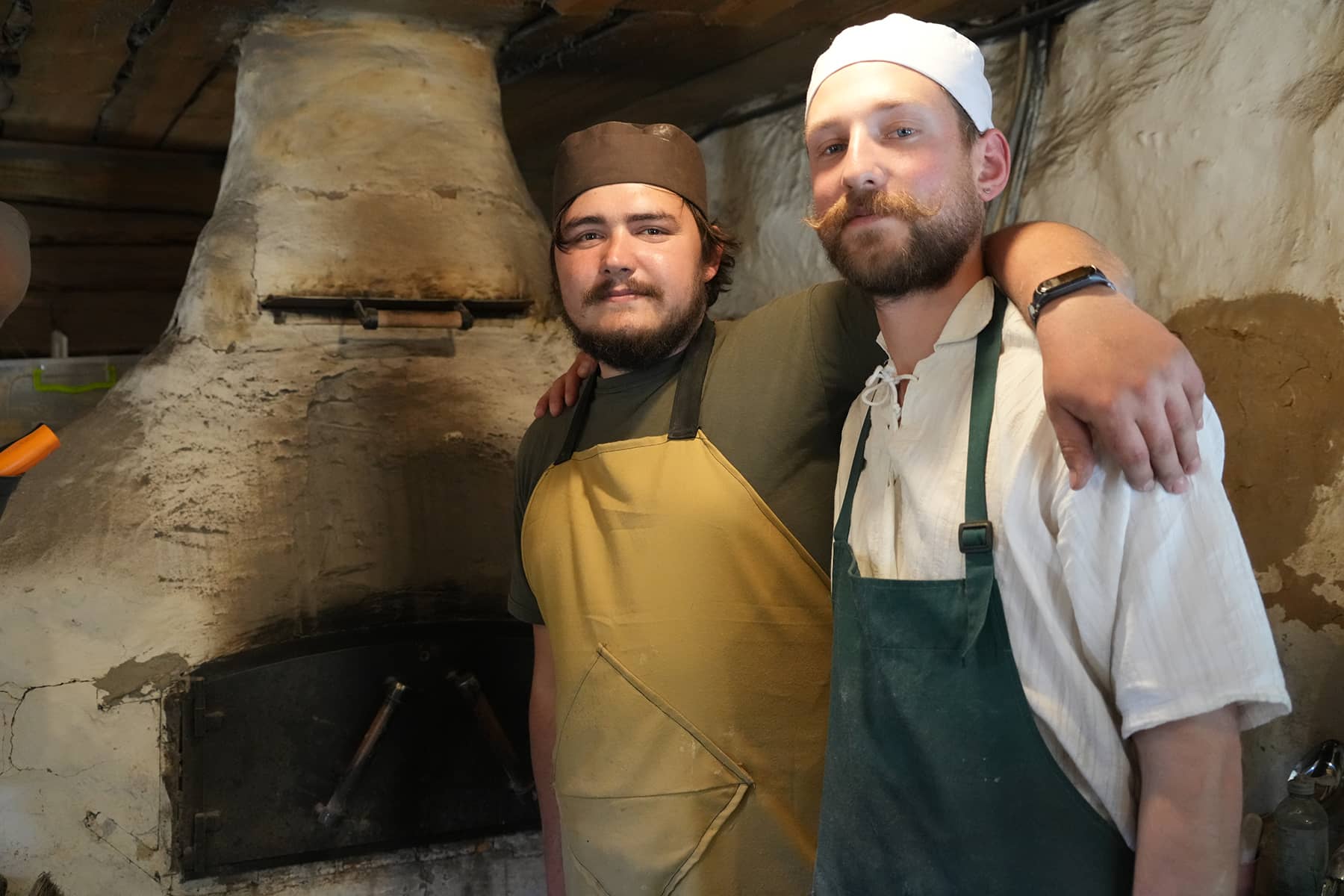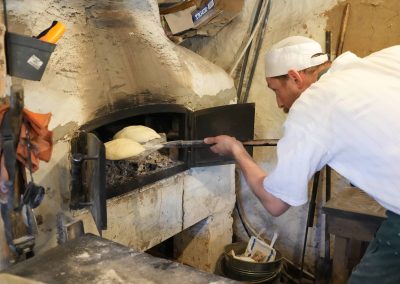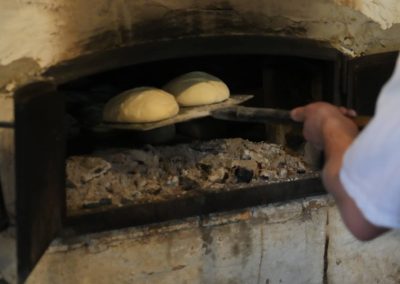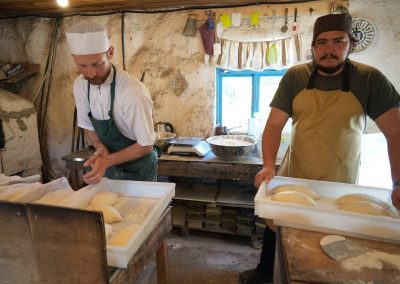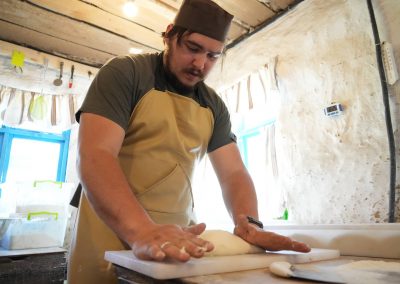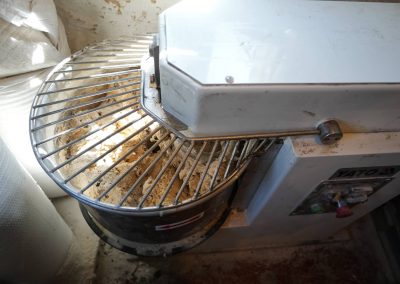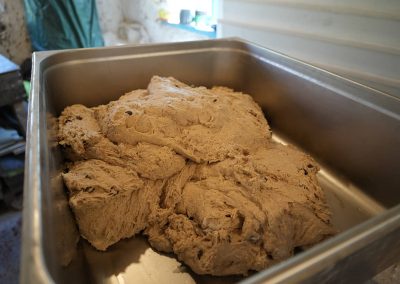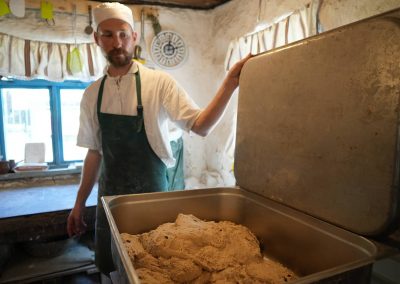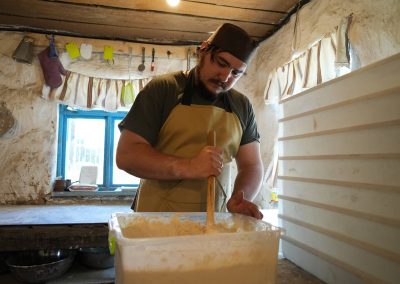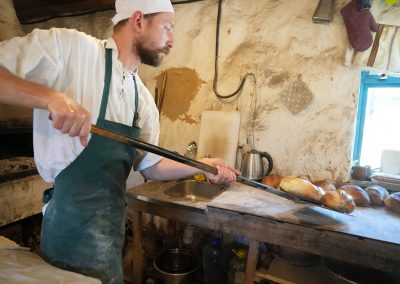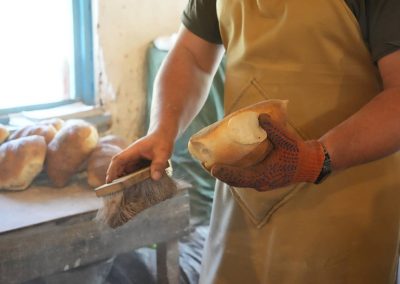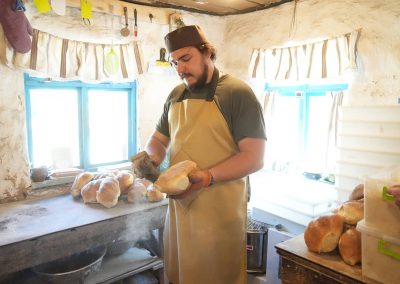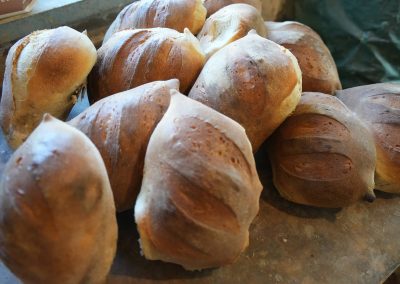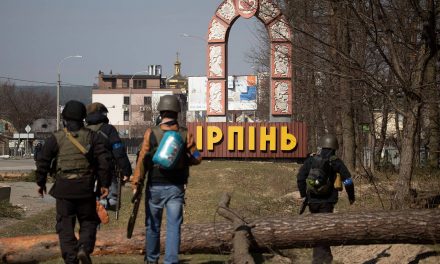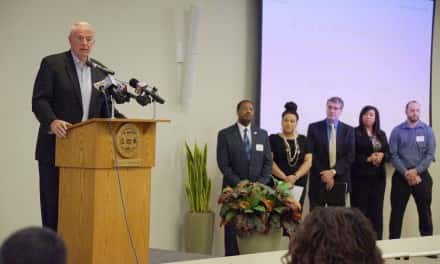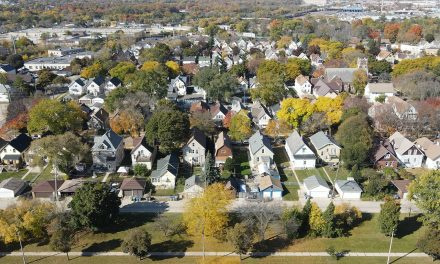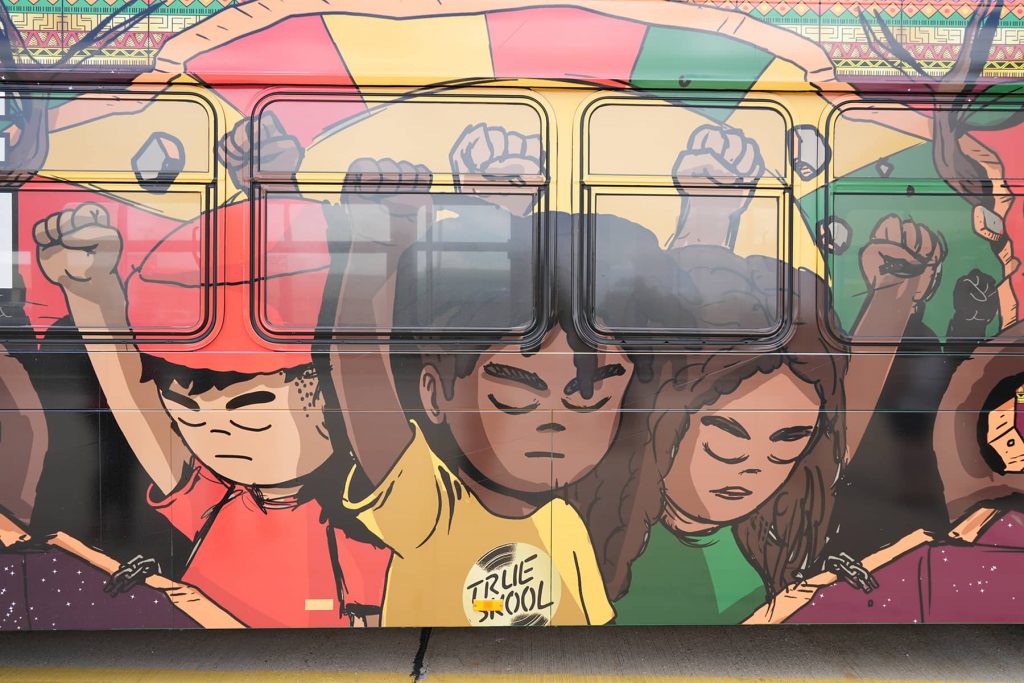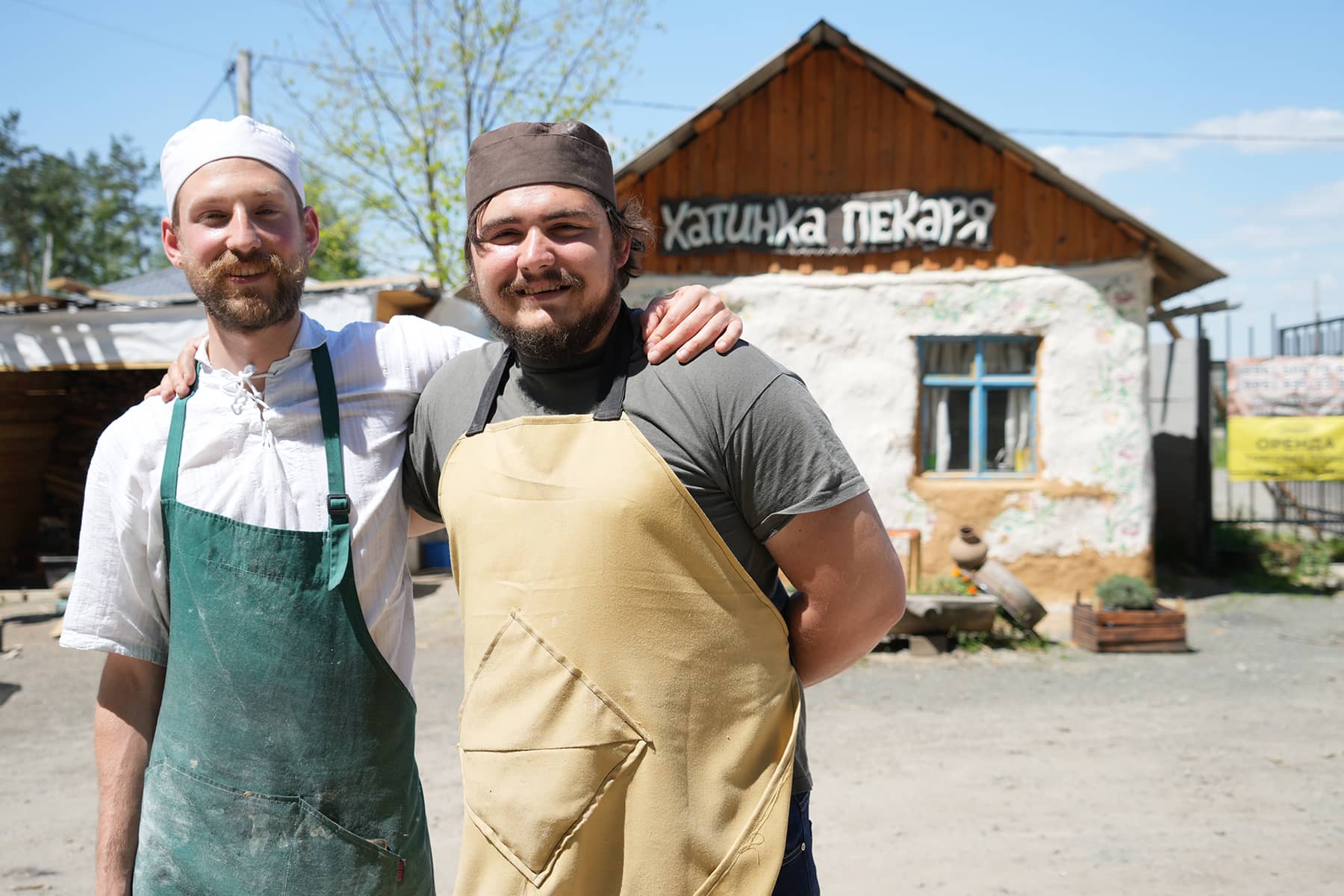
Since Ukrainian Army defeated Putin’s military in April and forced his invasion force into a humiliating retreat, the city of Bucha has become synonymous with Russian war crimes and the inhuman atrocity of its occupying soldiers. But there has been an overlooked miracle, in the form of a little bakery at the edge of the war weary town.
Khatynka Pekarya, the Baker’s Hut, continued to bake bread during much of the brutal Russian occupation, even as flour, oil, and other materials became scarce. It provided loaves to the hungry community at no cost, standing as an example of Ukrainian resilience and a community working together.
It is hard for anyone who is not Ukrainian to understand what bread means to the culture. The country lost millions of people due to a famine, known as Holodomor, that was organized by the Soviet regime. That trauma embedded at almost a DNA level a special feeling for bread in all the Ukrainian generations that followed.
By chance, the bakery in Bucha came to the attention of Halyna Salapata, a board member of Wisconsin Ukrainians Inc. who made it her mission to help sustain their mission.
On April 24, which was Easter Sunday for Ukrainians who follow the Julian calendar, Salapata had been volunteering and organizing events in Milwaukee to help her homeland defend against Russia’s unprovoked war. It was exhausting work, but she could not rest while so many suffered in Ukraine. While taking a break to decompress from the emotions of the religious holiday, Salapata she came across a story reported by Ukrainian news.
It featured a small bakery in Bucha, about a man who hand-kneaded dough and baked 150 loaves of bread a day in his small oven. He would then distribute the loaves it to hungry people of his town, who often had no other source of food because of the Russian occupation.
“This story stood out to me when I learned that the baker distributed bread to the needy for free. When he said that ‘we can bake more, but we have no electricity. So we need a generator,’ that was what hit me the hardest,” said Salapata.
She tried for weeks to track down the baker, using a screen capture of his name from the news report and scouring social media. The Internet and mobile phone network in Bucha was not working well at that time, so Salapata waited for replies to her messages. By the time they did connect, and she offered to have a generator sent to his bakery, she learned that someone had just loaned them one.
But he said that if Salapata really wanted to help, she could send a machine for kneading the dough, which was impossible to purchase in Ukraine. Through her partners in Poland and Ukraine delivering humanitarian supplies sent over from Milwaukee, she eventually found an industrial-grade mixer machine in Krakow.
“It cannot be understated how difficult the delivery was. Postal service to deliver a letter during a war can be impossible. To ship a heavy industrial kitchen appliance across the Polish boarder and then take it half the length of Ukraine to a newly liberated city required a miracle. That took shape in the form of a lot of hard work by many people,” said Salapata.
Not only was it difficult to arrange everything across multiple timezone and languages, the Kyiv region at that time was sill experiencing random missile strikes. Mobile phone service was often unable to get a signals. And the war curfew from 11:00 p.m. to 5:00 a.m. dictated transportation plans.
“It was a dangerous and eventful adventure that lasted for four days, from Monday to Thursday. But our War Uber – Barry Nelson – made it to the bakery right before the curfew on Thursday. It was only possible because of the caring and brave people with such big hearts on our team,” said Salapata. “So maybe I didn’t bake an Easter cake this year, but I was able to give the opportunity to someone to bake thousands more.”
Khatynka Pekarya is about two years old, and Yaroslav built the wood-burning oven himself. Before the dough kneading machine arrived, he would do everything by hand. He said it really helped save them energy and increase the amount of bread they could produce.
“We put the bread out as soon as it comes from the oven,” said Yaroslav. “People stop by and take what they need. It’s all free. Some leave donations to help us make more bread for others who are struggling to get by. We have organizations that we partner with, and we put together food baskets for people to distribute where infrastructure doesn’t exist yet.”
Milwaukee Independent team member Yaroslav Zdyrko – who shares the same name as the baker in Bucha – had helped coordinate the delivery of the mixer, and also a large provision of vegetable oil, 50 packs of dry yeast for baking, and some clothes for the people of Bucha. So he was looking forward to visiting the bakery and having some fresh bread, as we all were.
For me, bread has always been a part of my life. Not just as food or a staple of my diet, but the memories and feelings around the baking process through family and friends. For a time when I returned from Japan, a woman at the church I was attending required surgery for the tendons of her arm. She mentioned that the time needed to heal would prevent her from baking bread. I asked if she could teach me to bake bread, and it was a pivotal experience for me on many levels.
For months I baked sourdough bread in the Church’s kitchen on Saturday night. After it cooled I would have fresh bread for the congregation on Sunday morning. I had originally intended for much of the bread to support the food program we had just started, to feed the homeless of Milwaukee. But during my bread making education, I happened to connect with a local bakery who donated volumes of commercial loaves to us.
But I continued to bake my bread, in part from faith and as a way to process the culture shock of returning home after being overseas for so long. When I had the chance to return to Japan, with a job waiting, it was my bread making and service to my church that kept me planted in Milwaukee.
Within a few months I would land a job at the Milwaukee Business Journal. So while I no longer bake bread now, I credit it as altering the path of my life and career as a photojournalist. It was also what started a chain of events over the years, that ultimately took me from Milwaukee to a devastated town in a country at war to visit a bakery. And yes, the fresh bread was delicious and worth the trip.
© PHOTO NOTE: All the original editorial images published here have been posted to the Facebook page of Milwaukee Independent. That collection of photos contains the MI copyright and watermark for attribution, and may be used for private social media sharing. Do not download and share images directly from this page. mkeind.com/facebook
Series: Reports from Ukraine
- Reports from Ukraine: Traveling from Milwaukee to a country at war just to take a vacation from America
- Images from Ukraine: Latino artist travels to Irpin to paint mural inspired by "Echoes of Guernica"
- Images from Ukraine: Irpin residents welcome reissue of Russian Warship Stamp as latest sign of victory
- Stories from Ukraine: Wandering in the ruins of a shattered life after surviving Russia's invasion
- Images from Ukraine: Similar to the Alamo, martyred cities bought precious time to save a nation
- Stories from Ukraine: Tent camp offers shelter for displaced residents until Irpin can rebuild lost homes
- Images from Ukraine: Graveyards of Russian war machines show the scale of Putin's failure to seize Kyiv
- Images from Ukraine: Following the invasion convoy's 40-mile route and exploring an abandoned base
- Stories from Ukraine: Illegal weapons and proof of Russian War Crimes easily seen along streets of Irpin
- Images from Ukraine: How Irpin’s cemetery processed the staggering massacre of its local citizens
- Stories from Ukraine: Healing remains slow as Borodyanka residents recover from occupation
- Images from Ukraine: The deep scars of war remain visibly etched across the landscape of Borodyanka
- Interview with Oleksandr Markushin: Mayor of Irpin and the hero of a Hero City
- A Meeting of Sister Cities: Former and current Mayors of Irpin ask Milwaukee's business community for help
- Stories from Ukraine: Having a shared purpose helped Irpin's leaders protect the city and stop the invaders
- Stories from Ukraine: How Milwaukee helped a bakery feed hungry survivors in Bucha with fresh bread
- Stories from Ukraine: Bucha resident recalls how Russians turned neighborhood into a street of death
- Stories from Ukraine: How a mass grave of executions overshadowed accountability from Bucha’s leadership
- Images from Ukraine: Putin’s attack on Babyn Yar is a painful reminder of the broken vow of “Never Again”
- Images from Ukraine: An unexpected encounter with Jewish history and the bloody legacy of persecution
- Images from Ukraine: Listening to timeless voices of ethnic heritage etched in stone at Lychakiv Cemetery
- Images from Ukraine: The experience of attending a military funeral in Kyiv while children died in Uvalde
- Images from Ukraine: Stepping out of the fog of war to see the beauty of faith in ancient places of worship
- Images from Ukraine: The cities of Kyiv and Lviv were divided by history but remain united in identity
- Stories from Ukraine: Anya Nakonechna shares why the Lviv Opera is a symbol of her nation’s culture
- Images from Ukraine: A folk village where visitors can experience the life of past generations
- Images from Ukraine: Signs of renewal sprout from under Irpin’s rubble as city looks to the future
Yaroslav Zdyrko
Oleh Pinta and Halyna Salapata
Lее Mаtz
Lее Mаtz and Yaroslav Zdyrko
Milwaukee Independent editorial team for this special series: (UKRAINE) Lee Matz, photojournalist; Oleh Pinta, translator / reporter; Yaroslav Zdyrko, security / videographer; (MILWAUKEE) Halyna Salapata, logistics / translations.
Milwaukee Independent has reported on the situation in Ukraine since it was invaded on February 24. Coverage originally began with reactions and rallies from the local Ukrainian American community, and relationships with Milwaukee’s sister city of Irpin. Through partnerships and good journalism, sources were developed that enabled Milwaukee Independent to publish developments about the unprovoked war in realtime. In late May, a team from Milwaukee Independent spent nearly two weeks on the ground in Ukraine. The award-winning daily news magazine was the first and, at the time, only media organization to send staff into the country since the war began.
Reports from Ukraine: An extensive news series by Milwaukee Independent from a country at war

